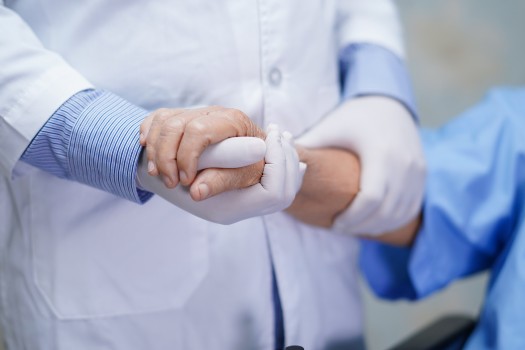The BMA has threatened the chief coroner in Essex with legal action if they do not withdraw guidance stating only healthcare professionals can verify deaths in person.
The Essex chief coroner wrote to local GPs at the end of April telling them deaths must only be confirmed by a healthcare professional – and that this must involve them physically seeing the patient, according to the BMA.
However, in response to the BMA’s warning of legal action, the chief coroner in Essex has said she sent a letter last week that supersedes her previous correspondence and which has ‘full regard to and accepts’ recent Government guidance on verifying deaths remotely.
Under English law any competent adult is permitted to verify a death, though in many regions GPs or other healthcare professionals have traditionally carried out this role.
The BMA has said it is ‘incredibly disappointing’ to see coroners making ‘unrealistic and unsafe’ demands during the coronavirus pandemic.
It has argued that coroners demanding GPs to visit patients in person to verify deaths takes doctors away from frontline care and also risks them catching Covid-19 if the patient died from the virus.
In joint guidance, the BMA and RCGP have outlined how doctors can assist with death verification remotely, by running through a series of checks with another person who is at the patient’s side.
The Department of Health and Social Care released guidance last week stating GPs are not required to verify deaths in person during the Covid-19 pandemic but are expected to provide remote clinical support.
BMA lawyers have now written to Essex’s chief coroner stating coroners have no legal authority to dictate how deaths are verified – a point confirmed by the Ministry of Justice this week.
They have warned they will mount legal action if the coroner cannot clarify the regulations on which their guidance is based.
According to the BMA, Essex chief coroner Mrs Caroline Beasley-Murray sent an email on 29 April, to be passed on to GPs, stating: ‘It is not acceptable under my jurisdiction, that the verification of death is carried out by video.
‘Only a healthcare professional (doctor, paramedic or registered nurse) may verify the death and this must be in person. It is not acceptable for death to be verified by anyone else.’
Dr Mark Sanford-Wood, BMA GP committee deputy chair, said: ‘The process of verifying a death must be swift, pragmatic and have the emotional wellbeing of those close to the deceased at its heart. This is all the more important during the current health crisis, which has already proved devastating for so many.
‘For years GPs and their local coroners have had positive relationships whereby they have worked together to reach agreement over processes that ensure a sensible and sensitive approach to certifying deaths.
‘Therefore, it’s incredibly disappointing to see coroners during this pandemic taking it upon themselves to put themselves ahead of the law, making unrealistic and unsafe demands.’
Dr Victoria Tzortziou-Brown, joint honorary secretary of the RCGP, which is named as an interested party in the BMA’s letter to the coroner, said: ‘In these extraordinary times, there is a need for various groups of workers to work differently and together as one system.’
Dr Tzortziou-Brown stressed the importance of remote verification to ensure bereaved families do not experience needless delays, reduce the risk of unnecessary virus exposure and allow clinicians to continue on the front line.
An Essex County Council spokesperson said: ‘The guidance which the senior coroner issued on 29 April has been superceded by her letter dated 7 May which was sent out jointly with the East Anglian senior coroners. This latest letter has full regard to and accepts the Department of Health guidance published on 5 May.”
The BMA recently criticised London coroners for issuing advice on death verification that was ‘at odds’ with the law.
Coroners in London admitted that while the law does not require a certain person to confirm someone has died, it is their belief this should only be done by ‘a healthcare professional who has undertaken the appropriate training’.

















